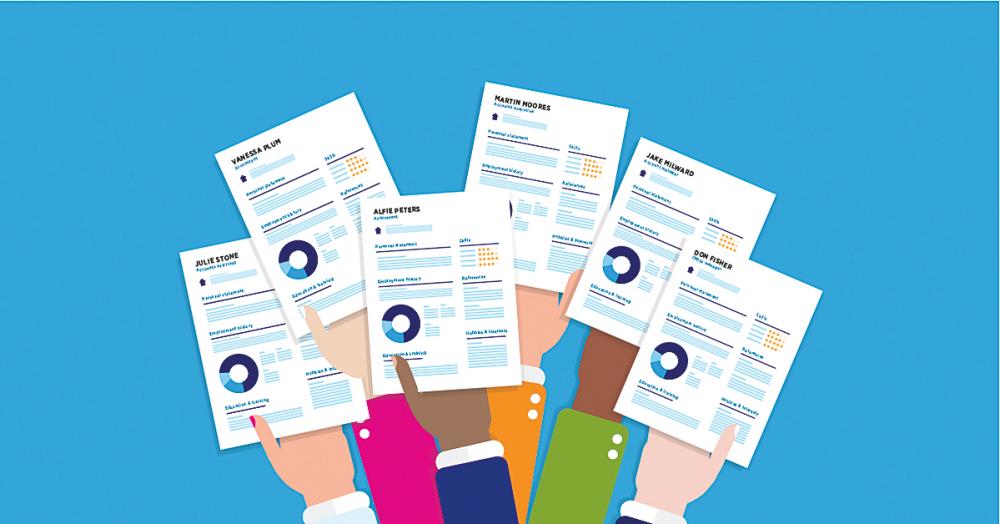CURRICULUM VITAE, better known in its abbreviated form as CV, is a Latin term that means “course of life”. It is a document that details a person’s particulars, academic credentials, qualifications, achievements, skills, previous working experiences, and such relevant information. It should represent the person who is putting in his/her application for a position, generally, for employment.
Global recruiting firm Hays reported that due to the ever-evolving working world, so too do CVs need to be altered. This idea is supported by the firm’s CEO Alistair Cox (pix), who believes that as career paths of professionals change and technology advances, the CV needs to evolve to keep pace. The rationale that supports his belief -“Professionals about to enter the workforce are set to work for ‘longer’ than any generation before them, and this means people are likely to change careers more often and take time out from their professions to focus on personal pursuits or other areas of interest. This is, therefore, set to impact the job search process, including the traditional CV”.
INTERVALS & BREAKS
Cox says that “gaps” in CVs will become more common as professionals move towards non-conventional career paths and take sabbaticals or breaks from their jobs. While not too long ago gaps on a CV were basically interpreted as “red flags”, today, it is common but job applicants are advised to explain the gaps in their CVs and state what they learnt during that time. It is also recommended that applicants tailor their CVs in a way that is relevant to the job they’re applying for.
“If you have been out of work for a period of time, communicate this via your CV. Career breaks are becoming more common, and if you’ve taken one, make sure you highlight how you kept yourself busy - whether you volunteered, undertook training courses or went travelling. It’s also a good idea to start collating an online portfolio of your work – this will help you condense the information on your CV, while still providing the reader with evidence of your achievements,” shared Cox.
NEW VISION
With all the changes in the working world that has impacted lifestyles, including the way people understand/think, so too does it call for a new approach in composing one’s CV. Cox identifies “skills” as the “new currency in the workplace”. He explains that this is due to technology which is ever-changing and points out how the lifetime value of a skill is becoming shorter and shorter, thus, more emphasis and significance should be placed on a job applicant’s current skills and potential, in comparison to his/her past experiences.
This simply means that job-seekers should undertake training and set aside learning to enhance their skills as continuous growth and development - “upskilling” - is seen as “essential” to a professional’s success.
Cox also suggests employers question and challenge themselves by asking if they really do need a candidate with X years of experience. “Wouldn’t a candidate who has all the right skills and bags of potential, rather than years and years of experience actually make more sense?” he asks. To the applicant, he advises, “Resist the temptation to dive into writing your job description on autopilot. Instead, start by thinking about what skills are needed for the role, the team and the business, both now and in the future”.
FOR MAN AND MACHINE
With technology driving huge change in the world of work, including the initial selection process of potential candidates, it is common that CVs are assessed by not just humans, but machines too. Hence, applicants should be looking at tailoring their CVs towards search algorithms.
“Artificial intelligence and automated machine learning algorithms may well be used in conjunction with the recruiter or hiring manager to screen your CV,” informs Cox and urges job applicants to think carefully about relevant keywords they can use in their CVs. “Try referring back to the job description and include similar words on your CV,” he recommends.
MAKE IT PERSONAL
There are few who understand the importance passion plays, thus, put little effort or none at all in clearly communicating it in their CVs. Potential employers look at what a potential employee is passionate about as it communicates what drives them in their career. This is as important as the customary skills and experiences which appear on a CV.
“Despite all the amazing benefits that technology can bring, it’s still the human touch that delivers the most value. Not only that, but as we are all facing the prospect of working for longer, the lines between our working and personal lives are becoming more blurred. Both of these factors, many would argue, mean that seeing a candidate as more than just words on a screen is becoming more important,” Cox shares.
Therefore, with all the changes technology is evoking across all areas of our working and personal lives, the nature of the CV included, do note that a well-written and well-structured CV can open doors, even the one’s we thought firmly closed and completely sealed. “It can even start conversations with people you never imagined you’d ever be able to get airtime with. But most importantly, your CV remains a key tool in helping you land an interview for the job of your dreams,” Cox affirms.
In short, change is de rigueur in order to progress, develop and advance. Let’s start with the CV.
[The article above is based on information from Hays (Malaysia) Sdn Bhd.]
DID YOU KNOW?
There are three major differences between a resume and CV which is the length, the purpose and the layout. A resume is a brief summary of one’s skills and experiences that should run across just one or two pages, whereas a CV is meant to be more detailed and can stretch beyond two pages. The resume should be tailored to a position while the CV is meant to stay put, with any changes mentioned in the cover letter.









